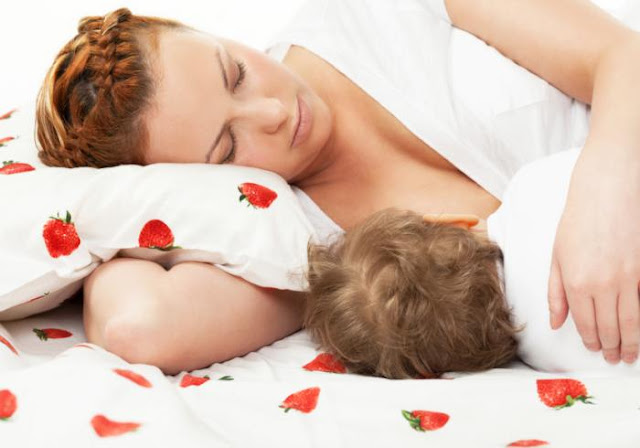Don't be misled about sharing your bed with your baby
There is a concerted campaign to dissuade parents from sleeping with their babies. The latest study published in the American Journal of Public Health attempts to prove that sleeping with your baby can cause death. This was a survey of statistics concerning babies who died unexpectedly. The data reveal that significantly more babies who died unexpectedly of SIDS (sudden infant death syndrome) were sleeping in a parental bed than sleeping alone in a crib. These statistics were taken from data over a three-year period in nine states to assess where babies who died of SIDS were sleeping when found. However, this study proves nothing.
A similar study could be done showing that more children develop asthma symptoms when outdoors. Should we then dissuade children from going outdoors or exercising? Or we could study low income families and discover that more of these children have asthma compared to children from more affluent families. Obviously other factors are present which would increase the risk of these children developing asthma such as poor nutrition or more exposure to pollution. Similarly there are risk factors that increase the likelihood of babies dying of SIDS, such as a parent's use of alcohol, drugs, or sleeping pills. However, the greatest risk factor that remains relatively unknown is the toxic fumes that disperse from mattresses treated with fire retardants. Simply covering the mattress with plastic sheeting or using an organic mattress brings the incidence of SIDS to zero.
Maligning the family bed is a favorite pastime in conventional medicine. The vast majority of families in the world sleep with their babies, and SIDS incidence in those cultures is low. Many studies have shown the benefits of babies sleeping with a parent, including an increased incidence of breast feeding, better sleep for babies, more stable heart and breathing patterns, and greater confidence and security in babies. At least one other study has shown a fourfold decrease in SIDS in co-sleeping babies. All of these studies should reassure parents that the family bed is a safe and healthy choice for babies to sleep.
A similar study could be done showing that more children develop asthma symptoms when outdoors. Should we then dissuade children from going outdoors or exercising? Or we could study low income families and discover that more of these children have asthma compared to children from more affluent families. Obviously other factors are present which would increase the risk of these children developing asthma such as poor nutrition or more exposure to pollution. Similarly there are risk factors that increase the likelihood of babies dying of SIDS, such as a parent's use of alcohol, drugs, or sleeping pills. However, the greatest risk factor that remains relatively unknown is the toxic fumes that disperse from mattresses treated with fire retardants. Simply covering the mattress with plastic sheeting or using an organic mattress brings the incidence of SIDS to zero.
Maligning the family bed is a favorite pastime in conventional medicine. The vast majority of families in the world sleep with their babies, and SIDS incidence in those cultures is low. Many studies have shown the benefits of babies sleeping with a parent, including an increased incidence of breast feeding, better sleep for babies, more stable heart and breathing patterns, and greater confidence and security in babies. At least one other study has shown a fourfold decrease in SIDS in co-sleeping babies. All of these studies should reassure parents that the family bed is a safe and healthy choice for babies to sleep.
More about baby



Comments
Post a Comment